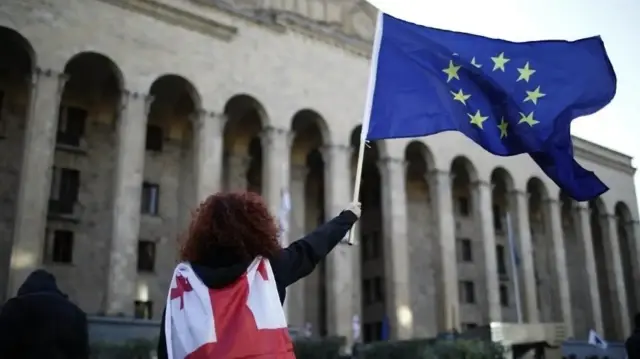Georgia rejects EU report as biased, accuses bloc of political interference

Georgia has strongly criticized the European Commission's latest enlargement report, describing it as prejudiced and politically motivated. The Foreign Ministry condemned what it characterized as attempts to use EU accession negotiations as leverage to influence Georgia's internal political affairs and decision-making processes.
Georgia has formally rejected the European Commission's assessment of its EU accession progress, characterizing the report as politically biased and intended to interfere with the South Caucasus nation's internal affairs. In a sharply worded statement, the Georgian Foreign Ministry expressed disappointment with what it described as unbalanced evaluations that ignore political developments during recent municipal elections while advancing unfounded negative assessments.
Post-Election Context and Diplomatic Tensions
The Georgian statement referenced October's municipal elections and subsequent protests in Tbilisi, including demonstrations near the presidential residence that Prime Minister Irakli Kobakhidze characterized as a coup attempt. The government detained five protest organizers on charges of attempting to overthrow the government, while EU institutions maintained what Georgia termed "persisting silence" regarding these domestic political developments.
Accession Process Stalemate
Tbilisi highlighted the apparent contradiction between Georgia's improving performance in international governance indexes and the negative evaluation contained within the EU report. The government noted that Brussels has refused to conduct accession negotiations throughout the past year despite obligations under the 2014 Association Agreement, creating what Georgian officials characterize as an unjustified stalemate in the membership process.
Broader EU-Georgia Relations
The Georgian government reaffirmed its commitment to constructive cooperation based on shared values while condemning what it perceives as coercive tactics from EU institutions. The statement emerged alongside EU foreign policy chief Kaja Kallas' characterization of Georgia as a "candidate country in name only" without a viable membership path without dramatic policy changes, reflecting the significant diplomatic divergence between Tbilisi and Brussels.
Reklam yükleniyor...
Reklam yükleniyor...







Comments you share on our site are a valuable resource for other users. Please be respectful of different opinions and other users. Avoid using rude, aggressive, derogatory, or discriminatory language.